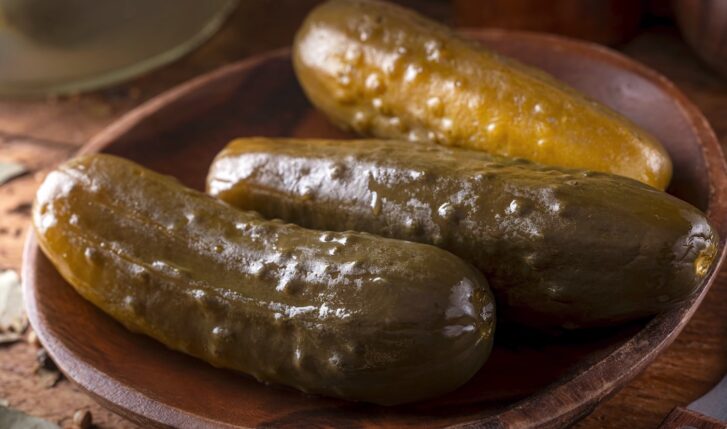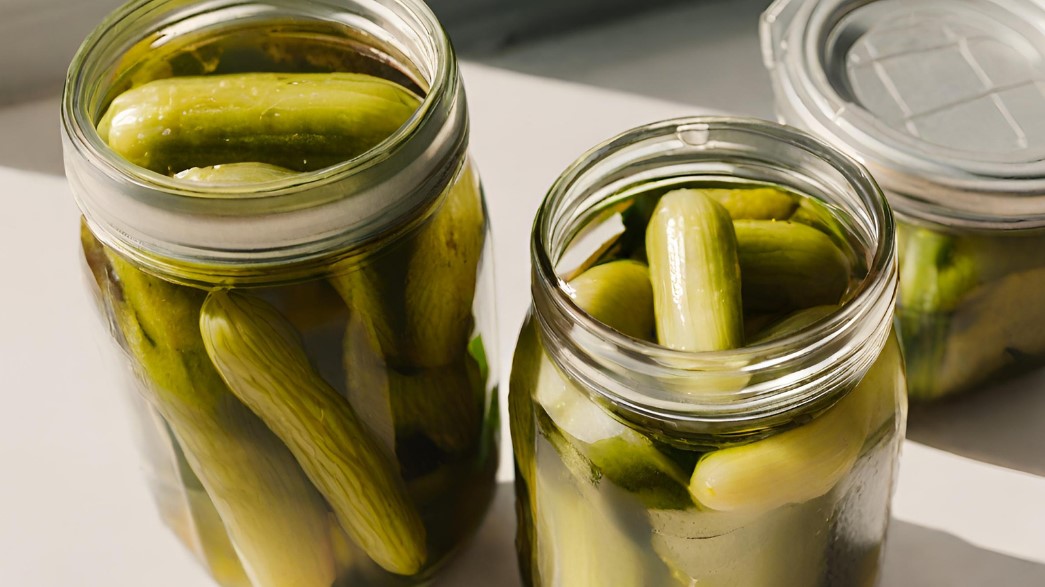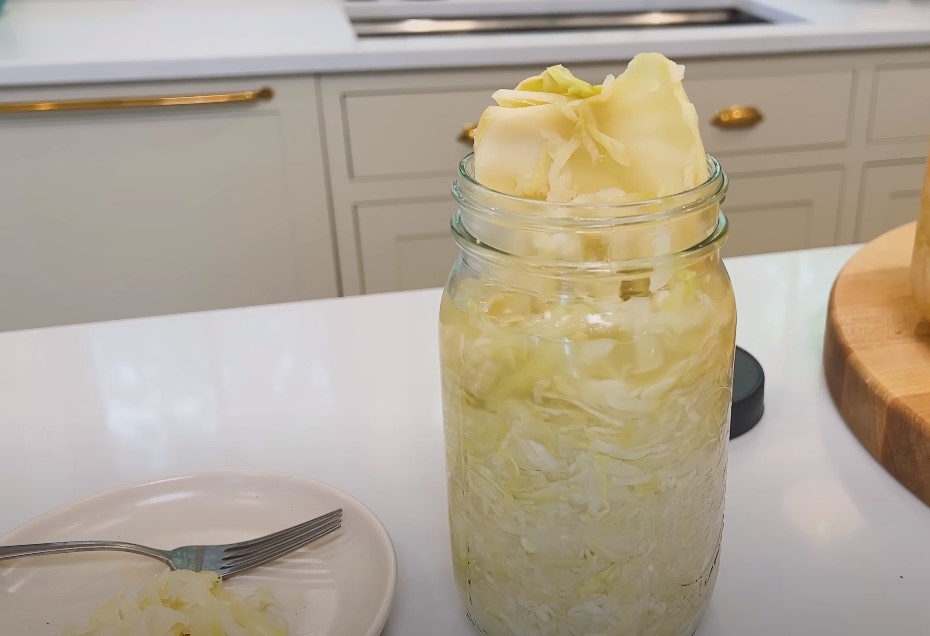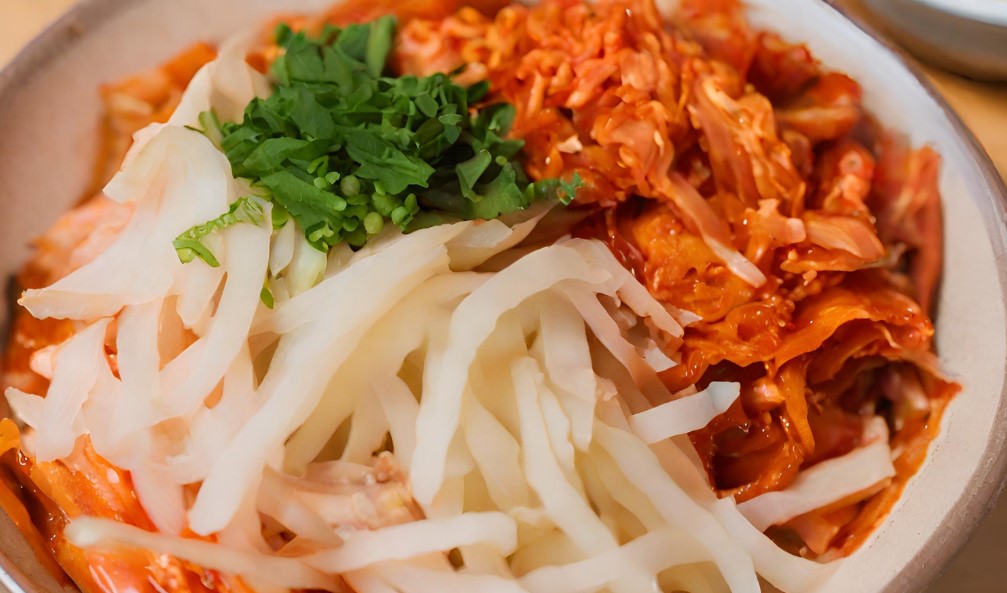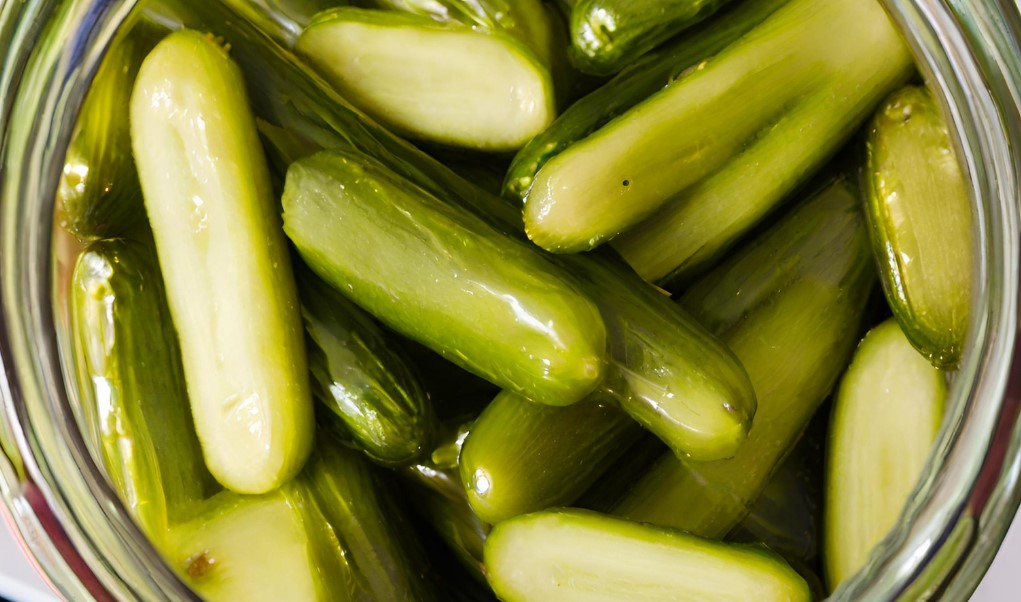Today, I’d like to share some insights about pickles and their probiotic content. Pickles, as part of the fermented foods family, undergo a process that encourages the growth of beneficial bacteria, known as probiotics.
It’s important to understand that not all pickles are equally rich in these beneficial microorganisms. For those unfamiliar, probiotics are live microorganisms that offer significant health benefits when consumed in adequate amounts, especially for gut health.
In my professional experience, I’ve found that supplementing with gut health products can be quite effective, particularly for those whose diets may lack sufficient probiotics. Furthermore, the gut microbiome is not just about physical health.
It has a profound impact on mood regulation and can influence mental health and the development of chronic diseases. So, let’s say, taking gut health supplements can help with mood regulation as well.
Now, let me cover the subject of pickles, and whether they contain probiotics.
Do All Pickles Contain Probiotics?
When it comes to the probiotic content in pickles, there’s a significant distinction between the two main types: Quick Pickles and Fermented Pickles. Quick Pickles, often found on grocery shelves, are made using a process that involves vinegar.
This method is efficient for flavor and preservation but does not support the growth of probiotics. The acidic environment of vinegar is not conducive to the cultivation of the beneficial bacteria that are synonymous with probiotics. Pairing with d-mannose can provide numerous benefits.
Fermented Pickles are created through a more traditional method, where cucumbers (or other vegetables) are immersed in a saltwater brine. This environment is ideal for the growth of natural, beneficial bacteria, such as Lactobacillus, which are responsible for the fermentation process.
As these bacteria consume the natural sugars in the vegetables, they produce lactic acid, which not only gives fermented pickles their distinctive sour taste but also fosters the growth of probiotics. However, several factors affect the probiotic content in pickles:
- Salt Content: Essential for the fermentation process, but excessive amounts can inhibit bacterial growth.
- Pasteurization: Common in commercial brands for longer shelf life; this process kills most probiotics.
- Storage: Refrigerated fermented pickles are more likely to retain probiotics compared to shelf-stable varieties.
Besides that, it is important to know the nutritional profile of pickles.
| Nutrient | Amount per 100g of Pickles |
|---|---|
| Calories | 11 kcal |
| Total Fat | 0.2g |
| Sodium | 1200mg |
| Total Carbohydrates | 2.3g |
| Dietary Fiber | 1.2g |
| Sugars | 0.9g |
| Protein | 0.3g |
| Vitamin C | 1.2mg |
| Vitamin K | 54.1µg (45% of DV) |
| Calcium | 43mg |
| Iron | 0.8mg |
Getting the Most Out of Pickle Probiotics
Harnessing the full probiotic potential of pickles involves making informed choices about the types of pickles you consume and how you consume them.
Here are some tips to maximize the probiotic benefits from pickles:
Choose Naturally Fermented, Refrigerated Varieties
When shopping for pickles, look for those labeled as naturally fermented and stored in the refrigeration section. These pickles have undergone a natural fermentation process, which is key to developing probiotics.
Refrigeration helps maintain the viability of these probiotics by slowing down any further fermentation and preserving the bacteria.
Make Your Own Fermented Pickles
Home fermentation is a rewarding and effective way to ensure the quality of your pickles. By making your own, you can control the salt content, which is crucial since high salt concentrations can inhibit the growth of beneficial bacteria.
You can also determine the fermentation level, adjusting the time to achieve the desired sourness and probiotic content. Fermenting at home allows for experimentation with different vegetables and spice combinations, creating unique flavors while still reaping the health benefits.
Consume the Pickle Brine
The brine in which the pickles are fermented is a goldmine of probiotics. Don’t discard it; instead, consider drinking it in small amounts or using it in salad dressings and marinades. The brine contains a concentrated amount of beneficial bacteria and can be a potent source of probiotics.
Practice Moderation Due to High Sodium Content
While fermented pickles are beneficial for their probiotics, they are also high in sodium. Consuming them in moderation is essential to avoid excessive sodium intake, which can be detrimental to health, particularly for those with hypertension or heart issues.
Probiotic Content of Other Fermented Foods
While pickles are a popular fermented food known for their probiotic content, they are just a part of fermented foods that can contribute beneficially to gut health, especially in cases of leaky gut.
| Fermented Food | Benefits |
|---|---|
| Sauerkraut | Fermented cabbage rich in probiotics, vitamins C and K, fiber. Benefits gut and immune health. |
| Kimchi | Korean fermented vegetables, high in vitamins A and B, iron, calcium. Aids digestion, may reduce inflammation. |
| Kefir | Fermented milk drink, diverse probiotics, rich in protein, calcium, B vitamins. Improves gut health. |
| Yogurt | Fermented milk with bacterial cultures. Choose live/active cultures for digestion and bone health benefits. |
Each of these fermented foods contains different strains of probiotics, which is why including a variety of them in your diet is beneficial. For instance, while pickles might be rich in certain lactic acid bacteria, kefir contains a wider range of bacteria and yeasts.
This diversity is crucial, as different probiotics have different health benefits and can contribute to a more balanced and effective gut microbiome. It goes without saying you can achieve even better results through consuming additional probiotics, like gut health supplements.
Increasing Probiotics in Your Diet
Incorporating a diverse range of probiotic-rich foods into your diet is a vital strategy for enhancing gut health. The variety of fermented foods available offers a spectrum of beneficial bacteria, each contributing uniquely to the gut’s microbial balance.
Here are some strategies to increase probiotics in your diet effectively:
Diversify Fermented Food Intake
While pickles are a great start, expanding your consumption to include other fermented foods like yogurt, kefir, sauerkraut, and kimchi can introduce a wider array of probiotics into your system.
Each of these foods harbors different strains of bacteria, thereby enriching your gut microbiome’s diversity, which is crucial for optimal gut health.
Add Fermented Foods into Regular Meals
Try to include some form of fermented food in your daily meals. For example, add sauerkraut to your sandwiches, enjoy a bowl of yogurt at breakfast, or use kimchi as a side dish for dinner.
These small additions can significantly boost your daily probiotic intake. Different yogurt variants can be quite useful in this case as well.
Choose Natural and Quality Sources
When selecting fermented foods, opt for natural and high-quality products. Look for labels that mention “live cultures” or “unpasteurized,” as these are indicative of probiotic presence.
Consider Probiotic Supplements
If your diet lacks variety in fermented foods, or if you have specific dietary restrictions, a probiotic supplement can be a convenient alternative. Supplements come in various forms and concentrations, offering different strains of bacteria.
Consult with a healthcare provider to choose gut health supplements that suit your health needs.
Home Fermentation
Engaging in home fermentation can be a rewarding way to ensure the quality of your probiotics, mainly when it comes to strains. This approach allows you to control the ingredients and fermentation process, tailoring it to your taste and health requirements.
Balance Quantity with Quality
It’s not just about the amount of fermented foods you consume, but also the quality and variety. A moderate amount of several high-quality, diverse fermented foods is more beneficial than a large quantity of just one type.
Stay Hydrated and Eat a Balanced Diet
While focusing on probiotics, it’s equally important to maintain overall dietary balance. Stay hydrated and consume a diet rich in fibers, vitamins, and minerals to support the probiotics in doing their job effectively.
FAQs
How many pickles can I eat per day?
It’s recommended to eat one to two pickles per day, considering their high sodium content. Moderation is key to balance the probiotic benefits with sodium intake. Each pickle has around 1.3 billion CFU.
Which is better, pickled or fermented?
Fermented foods are generally better for gut health as they contain live probiotics. Pickled foods, especially those pickled in vinegar without fermentation, do not usually contain probiotics.
Is kefir or kimchi better?
Both are excellent for gut health. Kefir is rich in a variety of probiotic strains and is a good source of protein and calcium. Kimchi, while also rich in probiotics, offers vitamins A and C, and antioxidants. The choice depends on dietary preferences and nutritional needs.
Summary
I advocate for a diet that includes a variety of fermented foods to ensure a well-rounded intake of probiotics, which are essential for optimal gut health.
Personally, I find making my own fermented pickles to be not only a delightful culinary venture but also a practical way to control the probiotic content.
This practice allows me to tailor the flavors to my preference and ensures that I’m adding a healthy, homemade option to my diet. As you can see, pickles can be just the thing that can get the diet going.
Related Posts:
- How Many Valence Electrons Does Magnesium Have? How…
- How Many Neutrons Does Magnesium Have? Find Out How…
- Does Herbal Tea Have Caffeine - The Trial of Truth!
- How Many Strains Should a Probiotic Have? - An Insight
- Can Anxiety Have Fatal Consequences? An In-Depth Look
- Probiotics and Mental Health: The Gut-Brain Connection

